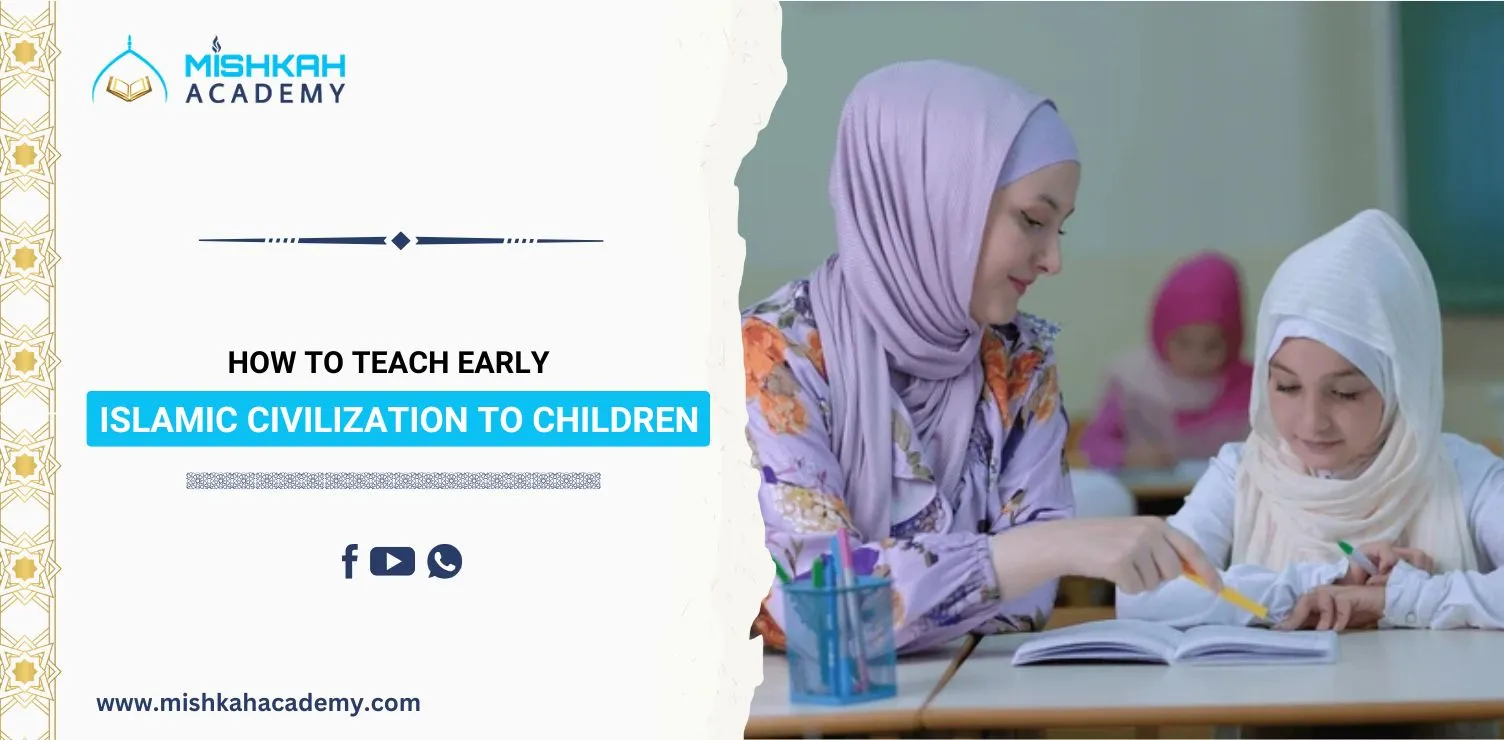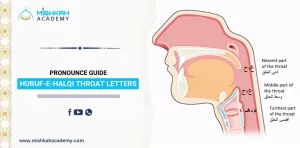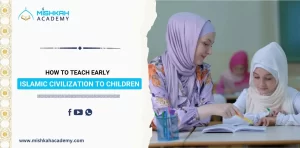Teaching children about early Islamic civilization offers a window into a rich history and culture that shaped much of the modern world. This topic introduces the life and teachings of Prophet Muhammad, the foundational beliefs through the Five Pillars, and the development of early Islamic empires. Children will learn about the Quran and Hadith, gaining insight into Islamic teachings, while understanding how Islam spread globally.
The role of Sharia in governance, cultural traditions, daily life, and the importance of social structure will be covered, highlighting the civilization’s diversity and vibrance. Additionally, we’ll explore the significant contributions of women, showcasing their impact on society.
What is the Islamic Civilization for the Kids?
Table of Contents
ToggleThe early Islamic civilization, beginning in the 7th century, was a vast empire that spread across many regions rather than being a single country. Starting in the Middle East with the rise of Islam around 610 CE, the civilization expanded quickly. By the 8th century, it stretched west across North Africa to Spain and east to India, uniting a diverse group of people through shared beliefs and culture.
Key cities like Baghdad (founded in 762 CE in modern Iraq), Córdoba (in Spain), and Cairo (in Egypt) became centers of learning, trade, and innovation. These cities were known for their advancements in science, mathematics, and art, making early Islamic civilization one of the most influential of its time. Children can learn all of these in Islamic classes for kids with the guidance of professional Islamic tutors and a proper curriculum.
Life and Teachings of Prophet Muhammad
Prophet Muhammad’s life and teachings are central to understanding Islamic civilization. Born in Mecca in 570 CE, Muhammad began receiving revelations from Allah in 610 CE, recorded as the Quran. His teachings focused on kindness, justice, and compassion, helping establish a unified moral and social framework.
He spread values like charity, honesty, and peace, which formed the foundation of Islamic civilization. After moving to Medina in 622 CE, Muhammad created a community based on faith, unity, and respect. This move, called the Hijra, marks the beginning of the Islamic calendar.
- Teachings of compassion and mercy.
- Emphasis on honesty and justice.
- Promotion of charity and unity.
Five Pillars of Islam
| Pillar | Description |
| Shahada | Declaration of faith in Allah and Muhammad as Prophet |
| Salah | Daily prayers performed five times a day |
| Zakat | Giving charity to support the less fortunate |
| Sawm | Fasting during the holy month of Ramadan |
| Hajj | Pilgrimage to Mecca, done at least once if possible |
The 5 Pillars of islam form the core of a Muslim’s life, guiding daily actions and beliefs. For children, understanding these pillars helps them see how early Muslims were united through shared practices and values. These pillars provided a strong, moral foundation for the growing Islamic civilization.
Start Your Islam Learning Journey NowDevelopment of Early Islamic Empires
| Empire | Key Achievements and Impact |
| Rashidun Caliphate | Expanded Islam rapidly after Prophet Muhammad’s death (632-661 CE) |
| Umayyad Caliphate | Extended the empire from Spain to India (661-750 CE) |
| Abbasid Caliphate | Flourished in science, culture, and trade; Golden Age (750-1258 CE) |
The development of early Islamic empires strengthened Islamic civilization. After Prophet Muhammad’s passing, the Rashidun, Umayyad, and Abbasid Caliphates helped spread Islam’s influence. These empires promoted education, trade, and culture, making cities like Baghdad and Córdoba important centers of learning and prosperity.
The Quran, Hadith, and Islamic Teachings
The Quran, Islam’s holy book, and Hadith, records of Prophet Muhammad’s sayings, form the backbone of Islamic teachings. The Quran emphasizes kindness, justice, and humility, which shaped Islamic civilization’s values.
For example, the Quran says, “Establish prayer, pay alms-tax, and bow down with those who bow down” (Quran 2:43), showing the importance of faith and generosity. Hadiths like, “The best among you are those who have the best manners” (Sahih al-Bukhari), promote good behavior and respect.
These teachings provided a moral framework for Muslim communities, influencing their laws, culture, and interactions with others. Teaching children about the Quran and Hadith helps them understand the guiding principles that shaped Islamic civilization.
Growth and Spread of Islam Worldwide
Islam spread rapidly across regions through trade, learning, and peaceful agreements, beginning in the 7th century. After Prophet Muhammad’s death, leaders expanded Islam west to North Africa and Spain and east to Persia and India. Key figures like Caliph Umar and Caliph Uthman helped grow Islam’s reach. In 711 CE, Muslim armies entered Spain, establishing a powerful Islamic presence in Europe that lasted for centuries.
- 711 CE: Islam enters Spain
- 732 CE: Battle of Tours, halting further expansion into Europe
- 750 CE: Abbasid Caliphate promotes cultural and scientific advancements
This expansion made Islamic civilization diverse, with contributions from many cultures. Sharing these events with kids helps them see Islam’s influence worldwide and the unity it fostered among various societies.
Role of Sharia in Early Governance
Sharia, or Islamic law, was essential in guiding early Islamic civilization. It is based on the teachings of the Quran and Hadith, which cover how to live with kindness, justice, and respect. Sharia provided rules for everything from how to treat others to managing communities, which helped early Muslims live in harmony.
- Justice and fairness: Sharia ensured everyone was treated equally.
- Charity and kindness: Emphasized helping those in need.
- Honesty in trade: Encouraged fair business practices.
- Respect for others: Taught respect for different cultures and beliefs.
Sharia’s principles influenced early Islamic governments, helping leaders rule with compassion and ensuring that laws aligned with Islamic values. Teaching kids about Sharia helps them understand how early Muslims used their faith to guide society.
Islamic Festivals and Cultural Traditions
| Festival | Description | Date | Islamic Month |
| Eid al-Fitr | Celebrates the end of Ramadan fasting | Varies | Shawwal |
| Eid al-Adha | Honors Prophet Ibrahim’s (AS) sacrifice | Varies | Dhul-Hijjah |
| Mawlid al-Nabi | Celebrates the birth of Prophet Muhammad (PBUH) | Varies | Rabi’ al-Awwal |
| Islamic New Year | Marks the start of the Islamic calendar year | Varies | Muharram |
| Laylat al-Qadr | Commemorates the night Quran was revealed to Prophet Muhammad (PBUH) | Last 10 nights of Ramadan | Ramadan |
Islamic festivals and traditions played an important role in early Islamic civilization, bringing communities together to celebrate shared beliefs and history.
Daily Life and Social Structure in Early Islam
In early Islamic society, daily life was organized around faith, family, and community. People worked as traders, farmers, and artisans, contributing to a growing and vibrant civilization. Mosques served as centers of worship and community gatherings, where people prayed, learned, and supported one another. Islamic teachings emphasized cleanliness, honesty, and kindness, which influenced how people interacted daily.
The social structure valued family and community, with respect for elders and care for the young. Women played significant roles in the family and society, participating in education, business, and even politics in some cases.
Contributions of Women in Islamic History
Women in early Islamic civilization contributed greatly to its growth and values. Hazrat Khadijah (RA), Prophet Muhammad’s (PBUH) first wife, was a successful businesswoman who supported Islam’s early days.
Hazrat Ayesha (RA), one of his wives, was a renowned scholar, and the Prophet (PBUH) said about her, “Take half of your religion from this gentle lady” (Al-Hakim). This shows the importance of her knowledge and wisdom.
- Hazrat Fatimah (RA): Prophet Muhammad’s (PBUH) daughter, known for her kindness and charity.
- Nusaybah bint Ka’ab (RA): Brave defender who helped in battles.
Teaching young girls about these women inspires them to seek knowledge, strength, and compassion.
Conclusion
Inspiring kids to learn about Islamic civilization becomes much easier with Mishkah Academy Islam and quran classes for kids. Their experienced tutors offer engaging lessons that cover essential Islamic teachings, history, and values, making them accessible to young minds.
With guidance from experts who have taught these subjects for years in online islamic classes, parents can ensure their children gain a strong foundation in Islam while fostering curiosity and respect for their faith.
Start Your Islam Learning Journey Now





